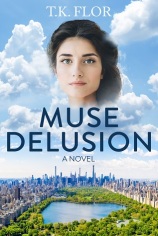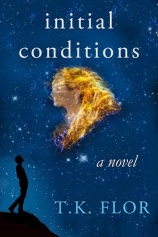It has been four years since I (self-)published my novel, Initial Conditions, in January 2015. I began writing a second, unrelated story, in the spring of that year. It progressed very little until NaNoWriMo in November. In January 2016, I read my 75K-words manuscript and could not understand what it was about. Several half-hearted attempts to salvage it resulted in six chapters, which I sent in January 2018 to a beta reader. The reader liked the premise, but gently made it clear that the execution did not deliver; the story was not engaging. A year later, I have nineteen chapters – an almost completed novel, except the last act. I don’t know yet if the story works for anyone beside myself, but, looking back, I can see the roadblocks that I wish I was warned about.
In hindsight, the ability to self-publish and the plethora of available resources for how to do it were a mixed blessing. It’s unlikely that I would have attempted to write the new story if self-publishing was not an option. On the other hand, bearing in mind imaginary “readers” and their expectations was a source of continuous frustration. I tried to shoehorn the story into genres – romance and science-fiction. It resisted the attempts, and pushed back, making the writing hard and so very slow.
Another problem was that of perception. Self-publishing has supposedly opened the floodgates, and the resulting deluge of books made the discovery of novels penned by unknown indie writers increasingly difficult. In theory, that should have little effect on my writing. The problem was that it changed the atmosphere. In 2014, when I first heard about self-publishing, the prevalent advice to beginners was to write what you want and then offer several people to read it. If they liked the story, you paid for professional editing, bought a genre-appropriate cover, uploaded the ebook and let it find its audience on Amazon. This is not the advice I see in the last couple of years. Nowadays aspiring authors are advised to start with identifying their goals. “Do you want to become a full-time writer? Be ready to hone your craft, set daily writing goals, and learn marketing techniques.” Add to that talent, motivation and perseverance, and the indie community might welcome you.
Hobbyists, on the other hand, are mostly dismissed as those who lack the qualities to become professional, and consequently their books, or at least their sales, suck. This prevailing attitude, whether it is true or not, rubs in. As far as I could tell, what distinguishes a professional writer and a hobbyist is a consistent production of books that find a paying audience. Listening to advice intended for professionals, I pushed myself to adhere to writing goals. I analyzed my story according to various recommended craft books. But my characters stared at me bewildered and uncooperative. I kept rewriting, adding to the word count without making the story better.
My last obstacle is also rooted in perception, this time perception that stems from the reactions of nearest and dearest. In my mind, these are the readers I want to draw into my story. When they are indifferent or bored, I tend to look differently at my characters. I try to make them more appealing, stronger, more sympathetic, until I lose the thread of the story.
Since January is a month of optimistic beginnings, I want to end my overview of what hindered my writing with a note about why it started progressing at a much faster pace. Eventually, it dawned on me that the changes in self-publishing are so fast that chasing fashions makes no sense for a hobbyist. I’m not a professional who writes stories on demand. I like the characters. We have been together through many ups and downs, and I want to see them reach the happy ending. When I write, I’m my own audience. Whether I’ll publish the story depends on whether others like it.




As they always say, writers write. The only audience you can count on is yourself, so you may as well make yourself happy. Thanks for the thoughtful post.
LikeLike
🙂
LikeLike